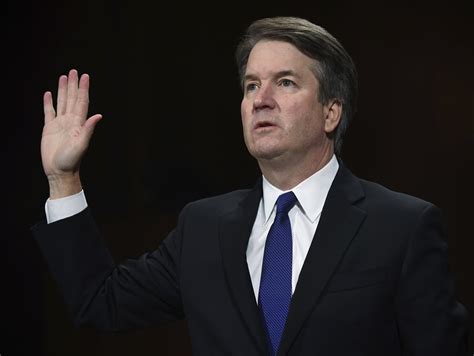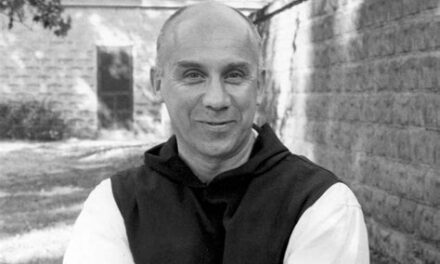Pardon me if I indulge myself in a small act of self-torture, or, if you prefer, a brief moment of masochism, courtesy of an inspired imagination. It goes like this. I’m sitting in my easy chair at home, happily listening to music when, quite unexpectedly, someone rings the doorbell. After opening the front door, I find a stern-faced stranger who hands me a letter and, without a word, leaves. He’s not our postman, I know, because no postman ever drove a black limousine, so I’m somewhat befuddled as to what he’s doing and who he thinks he is.
Naturally, I must open the letter, which, after all, is addressed to me. What I read stuns me as bizarre and, after I catch my breath, offensive. A man whose name I don’t remember and who was, if and when I actually knew him, not a man at all but an adolescent—so says the letter—has charged me with assault and battery. Sometime in high school, as the letter recites the event, I hit him for some reason or another—very hard he claims, so hard that he never forgot it and lived in fear of everyone he encountered for a period of “years” (the actual term is unspecified).
Now, I had to think this over. In my teens, I was not a brawler, but I’ll acknowledge that I may have scuffled with someone, somewhere, sometime, once or twice. Such things happened to me and others I knew rarely and unexpectedly; they didn’t even rise to the level of an arranged schoolyard duel d’honneur with fisticuffs. But that’s the difficulty with the strange letter. It doesn’t say when the “assault” occurred; it’s mum on the matter of time and place.
Today, at an age that, alas, qualifies me as a “senior,” faces and localities from the distant past tend to get jumbled together in memory. If I have a chance to compare notes about the past with a friend from my high-school years, the things I’m convinced happened a certain way receive a different interpretation in his memory. A distance of fifty years, even from events we think we remember well, is no joke.
And this letter mentions, in terms one would charitably call vague, something I don’t recall that apparently ruined the life of someone whose name (John Smith, as it happens) draws a blank. Smith’s allegations, if “proven,” might destroy my academic career. The word “bully” stood out in the letter—bold type, mind you—on a number of occasions, and you can guess the inevitable effect of that charge in today’s climate. And no matter how much I rack my brains, I can’t recall John Smith, assaulted or not.
Now, if this little tale were not a playful act of imagination, cool and prudent friends would soothe me with words of wisdom. The event behind the charge took place so long ago it isn’t likely anybody will recall what really happened. And, as the good Lord Himself knows, adolescent crimes and misdemeanors are usually judged by a vastly different standard from those of adults.
Anyhow, the letter very likely constitutes nothing but a practical joke or, at worst, a cruel prank. If I don’t recollect even knowing John Smith, and if John Smith or his parents didn’t file charges decades ago against me or anybody else, then there’s really no assault and nothing to worry about. Reasonable men understand that legal process if it’s genuine, requires evidence, and credible witnesses.
My imaginary crisis is the stuff of hard reality for Brett Kavanaugh. As of this moment, he has been accused by one Christine Blasey Ford with sexual assault at a party when they were teenagers (Kavanaugh, 17; Ford, 15) thirty-seven years ago—all this in a letter to a representative that was sent to a senator (Dianne Feinstein) that ended up in the hands of the Washington Post and stayed a deep, dark secret for three months until the eve of Senate confirmation.
Ford doesn’t know where the party was or when it occurred. People she claims were there have denied attending. So far as I know, she has not explained how she got there or who invited her. Kavanaugh’s school was all male, so Ford and he were not classmates, and nothing has emerged to establish prior acquaintance. How could she claim today to recognize someone from an “event” that occurred thirty-seven years ago, someone she likely had never seen before and saw for what, according to the sexual assault scenario, must have been minutes at best (in a light, dim, or dark room)?
Ah, but consider the corroborating “evidence” dug up by the Huffington Post. A former student at Georgetown Preparatory School, speaking “on condition of anonymity,” has revealed the lurid truth: the place was a party school, and that isn’t the half of it: “Drugs everywhere. Partying everywhere. Drinking — just whatever we wanted to do. It was unbelievable, off the rails. And that’s just how it was.” And sex? “Don’t tell” was the motto.
Did he know Brett Kavanaugh? He apparently knew of him, and although he couldn’t recollect anything specific the SCOTUS nominee did, he sure remembers some of Kavanaugh’s friends, and, boy, what he could say about them hardly bears repeating—especially under a veil of anonymity.
I wonder if the HuffPo has even a minimal understanding of certain logical fallacies, such as guilt by association or poisoning the well. Just look, the piece cries, at some of the people Kavanaugh knew! Doesn’t that just prove he was just as wild? Just think of that code of secrecy! Don’t Kavanaugh’s denials fit the “Don’t tell” template? I mean, what kind of evidence do you want if you can’t accept those damning “facts”?
And each day the show gets stranger with new recollections of parties Kavanaugh “might” have attended (now at Yale), rumors of his being part of a high school rape gang, protestors declaring “Believe her,” and on and on.
Is my nightmarish daydream of John Smith so strange after all? Perhaps it’s a forecast—overall a rather mild one—of a radical future in which progressive goon squads roam the public square, deputed to cow “enemies” with charges of “crimes” against humanity (read: against approved victims) without evidence, witnesses, or due process of any kind, and with a new statute of limitations of one hundred years as a means of convicting “criminals” (guilty until proven innocent) of deeds committed even before they were born: guilt by association, ancestry, and political affiliation, judged by history.
Is that so hard to imagine? Think it over. It’s unfolding before our eyes.














